Plot Synopsis
"The Heart" tells the story of Zhou Xiao Feng, Fang Xiao Ran, and Lin Yi, three cardiologists who coincidentally meet at the Cardiac Center of Dongli Hospital. Due to their differentprofessional backgrounds and careerphilosophies, they initially clash but gradually developunderstanding and synergy through theprocess of treating and savingpatients, ultimately becoming comrades on the battlefield of life.
Zhou Xiao Feng is the Deputy ChiefPhysician of the Cardiology Department at Dongli Hospital. He is introverted, disciplined in both work and life, and is a key talent cultivated by the department head, Bai Ji, and the hospital leadership. He is a backbone of the cardiology department. He becomespartners with Lin Yi, a straightforward and impulsive cardiac surgeon, in the coronary artery team. The two have differing medicalphilosophies and significant differences in opinions.
Lin Yi is also a recent addition to the hospital.Previously, he had solely focused onperforming surgeries and lacked communication and collaboration with colleagues. His immediate supervisor and mentor, Cao Nuo Ya, believed that this hindered his growth and thus recommended him to work at the newly established Cardiac Center of Dongli Hospital.
Fang Xiao Ran, Zhou Xiao Feng's sister, enters Dongli Hospital as an ICUphysician inpursuit of her own ideals and to ease the relationshipbetween her brother and their mother. Through theprocess of treating and savingpatients, the three individuals transition from misunderstanding and confrontation to mutual appreciation and support, becoming excellent workpartners.
Where to Watch "The Heart"
WeTV Purchase (sub)Episodes Recap
- 1-5
- 6-10
- 11-15
- 16-20
- 21-25
- 26-30
- 31-35
- 36-38
Episode 1 : Zhou Xiao Feng and Lin Yi encountered a doctor-patient conflict when they first met.
Episode 2 : Fang Xiao Ran helped Zhou Xiao Feng find the surveillance footage.
Episode 3 : Lin Yi directly confronted Zhou Xiao Feng.
Episode 4 : Lin Yi saves a critically ill patient in a race against time.
Episode 5 : A patient who narrowly escaped death is betrayed by her husband.
Episode 6 : Zhang Yuxi's parents rushed to the hospital.
Episode 7 : Lin Yi and Zhou Xiao Feng had a dispute.
Episode 8 : Zhou Xiaofeng treated everyone to a meal.
Episode 9 : Yan Zong is hospitalized.
Episode 10 : Zhou Xiaofeng asked Fang Xiaoran for help.
Episode 11 : Mr. Yan turned danger into safety.
Episode 12 : Song Xing Yan is hospitalized.
Episode 13 : Lin Yi sincerely reflects on themselves.
Episode 14 : Zhou Xiaofeng and Fang Zhuqing parted ways unhappily.
Episode 15 : Zhou Xiaofeng apologized to Fang Xiaoran.
Episode 16 : Lin Yi's elder brother was admitted to the hospital.
Episode 17 : Qiang Wei was saved from attempting suicide.
Episode 18 : Lin Yi sought Zhou Xiao Feng's help.
Episode 19 : Lin Yi invited Zhou Xiao Feng for a meal.
Episode 20 : After the surgery, Yang Gui Lan encountered some problems.
Episode 21 : Yang Gui Lan passed away.
Episode 22 : Zhou Xiaofeng and Chen Yue went out to eat.
Episode 23 : Zhou Xiaofeng was beaten.
Episode 24 : Shen Mi successfully delayed the launch of the new drug.
Episode 25 : Tian Lin has a strong competitor.
Episode 26 : Lin Yi fell ill and was hospitalized.
Episode 27 : Zhuang Jia Shun's wife apologized to Lin Yi and the others.
Episode 28 : The head nurse faced a dilemma.
Episode 29 : Lin Yi and Zhou Xiao Feng are collaborating.
Episode 30 : Fang Xiao Ran vented to Zhou Xiao Feng.
Cast & Role
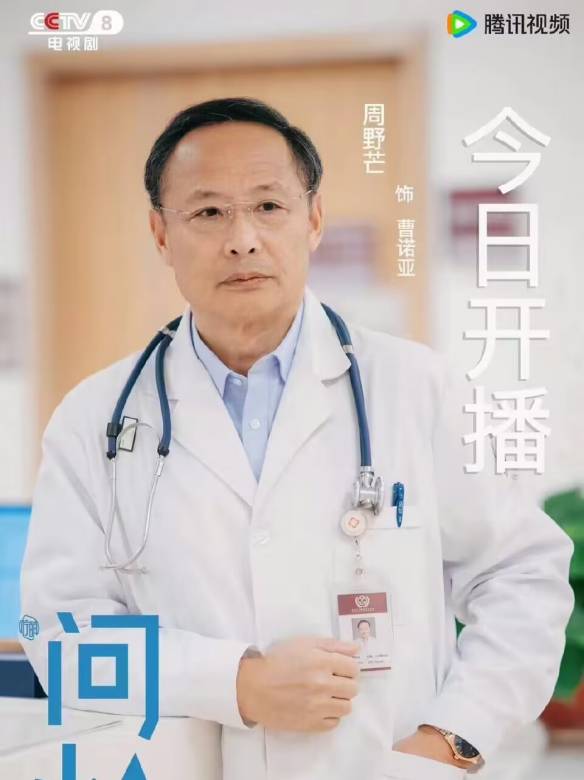
Cao Nuo Ya
(Zhou Ye Mang)
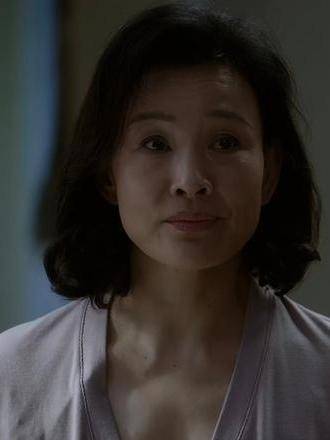
Fang Zhu Qing
(Chen Chong)
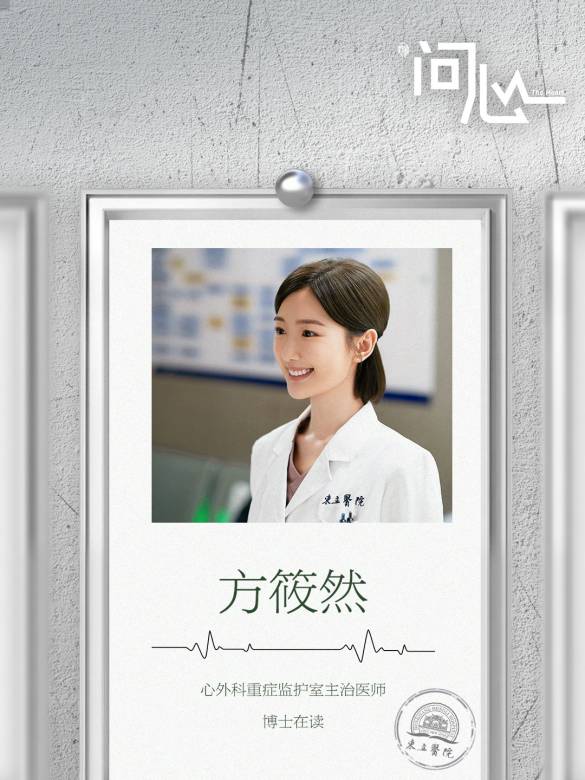
Fang Xiao Ran
(Mao Xiao Tong)
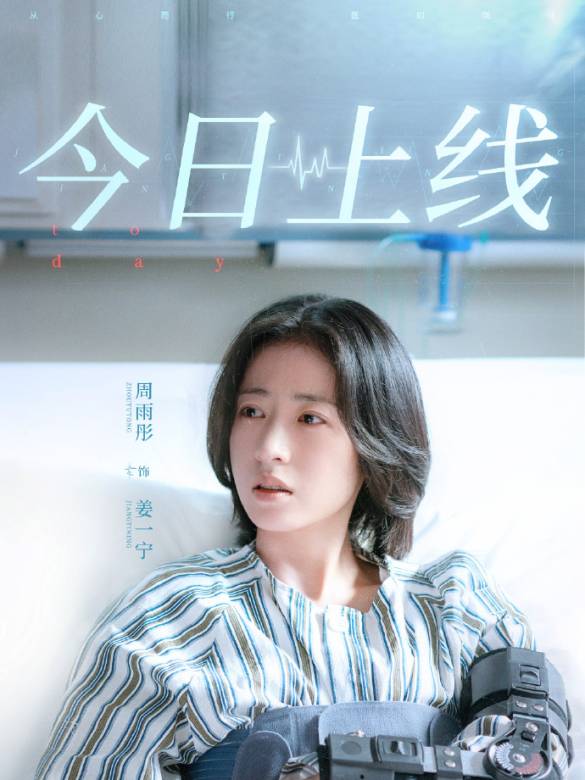
Jiang Yi Ning
(Zhou Yu Tong)
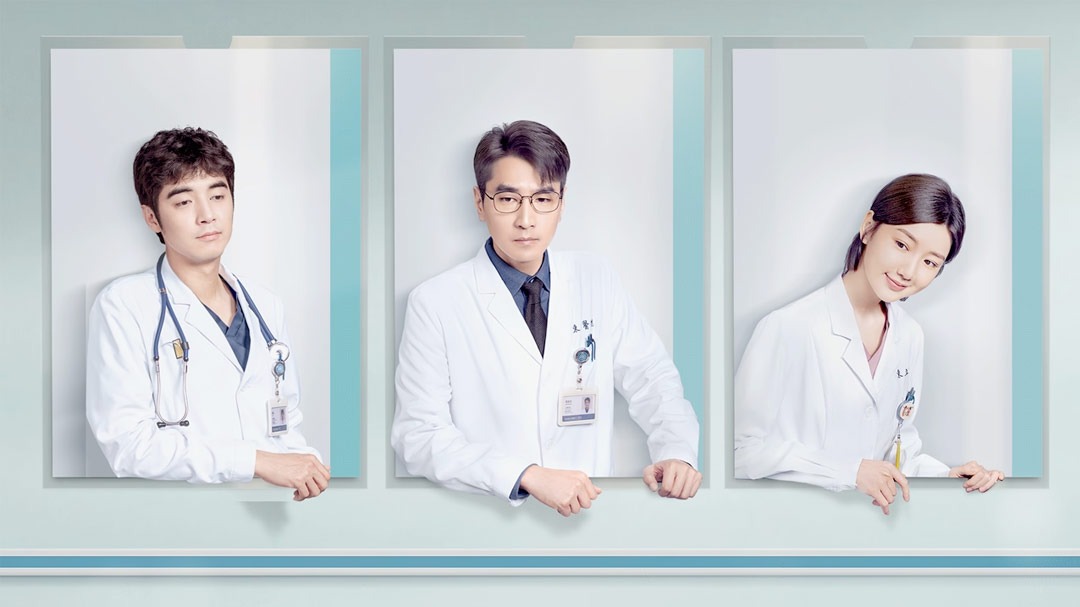

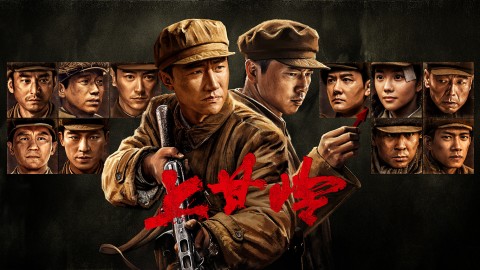

Don't romanticize doctors and nurses too much. I don't deny that some of them are responsible and caring, but in reality, we all know what it's really like.
The criticism of Lin Yi is really laughable. Do you think a doctor would willingly take such a risk, a risk that could ruin their entire life? Following the procedure and conducting tests first, even if the patient dies, it wouldn't be their responsibility.
If you were the patient, would you choose to die following the procedure, or would you want someone to save you? Lin Yi could have chosen a risk-free approach. It's not like his own life was in danger.
He sacrificed his own future to save lives, and yet you bunch of scum are here berating him.
The criticism of Dr. Zhou seems a bit excessive. When Lao Wang called and said the pain had subsided, Dr. Zhou simply responded with "that's good" without further inquiring about whether the imaging was done. Perhaps he should have communicated with Dr. Zhou Xiaofeng at that time to bring Lao Wang back. Can the hospital arrange for more doctors? It's indeed difficult for one doctor to handle so many patients in rotation.
I really dislike Lin Yi's character portrayal; it's truly speechless. Although geniuses can be arrogant at times, his arrogance lacks any intelligence. He's commonly referred to as lacking emotional intelligence. Moreover, after practicing medicine for so many years, he's still just an associate chief physician.
His personality somewhat contradicts his experiences. Honestly, I find this character portrayal quite perplexing. Does the screenwriter really have to rely on such conflicting and contradictory elements to depict a person's growth?
Where does this kind of narrow-minded thinking come from? It's truly baffling. It's not even one-thousandth as informative as a documentary. It's purely for entertainment purposes, and if you watch the drama without engaging your brain, it can still be enjoyable.
In reality, good doctors are often defeated by reality. They face the lack of understanding from some patients and their families, the non-cooperation during treatment, the constraints of various rules and regulations, and healthcare professionals have to deal with not only medical matters but also superiors, medical insurance, and health committees.
Their compensation is not as high as other industries, overtime is not voluntary, there are no benefits during holidays, and they work on rotating shifts throughout the year. The educational requirements are high, and it takes a long time to establish themselves.
If given the chance to choose again, would you still choose to study medicine?
This Director Bai pretends to understand but he actually doesn't. Although it's true that minimally invasive surgery carries less risk and has better postoperative recovery compared to traditional surgery, you also need to consider who is suitable for minimally invasive surgery.
But no, you agreed just for the sake of your department and a little personal gain. Look at Director Bai showing off his knowledge. Mr. Yan, your thinking is really clear, I'm truly impressed!
Didn't you hear what Director Bai said?
What if the bioprosthetic valve doesn't work and you have to put in another one? Aren't you afraid of more trouble and complications?
Direct surgery is one of the best options and it avoids second-guessing.
Is there some collusion between Mr. Yan and that little leaf next to him who keeps praising Director Bai?
I have a feeling that something will go wrong even if nothing goes wrong. Director Bai's words have been distorted by your excessive pragmatism!
It's clear that your skills are not up to par, and yet you insist on performing minimally invasive surgery just to shift blame. Director Xiaofeng had a bit of foresight by involving the new surgeons as alternatives.
Director Bai seems to have an overly inflated opinion of his own skills. And he even said, "Why don't you trust my technique?
Dr. Zhou just smiled and didn't speak his mind, but it's evident that he's a little worried.
I think this series portrays the hardships of doctors and their compassionate nature quite realistically. This is the reality. In reality, most doctors have a conscience and uphold medical ethics. However, I also acknowledge that there are bad doctors, but they are truly the minority.
Just like how I believe that most people are good, but there are a few with bad intentions. If you already have a negative attitude towards doctors, then you don't have any reason to watch this series.
People with ugly souls will find fault and feel displeased no matter what they watch. That's your problem, not the doctors' problem. Most doctors have a clear conscience and are doing their best to save patients.
If you have doubts, you can spend a week in the emergency room of a hospital and witness it for yourself. There's no need to watch the drama and criticize doctors from behind a screen. It's truly disgusting.
The problem lies in the distorted societal values that worship internet celebrities and so-called stars, while the true scientists, doctors, teachers, soldiers, and police officers who serve the people are criticized by a bunch of keyboard warriors!
The problem lies with those who don't serve the people. The problem lies with this group of keyboard warriors who vent their anger so heavily!
I was deeply moved... As someone who has spent nearly a year in the hospital before, I feel that most doctors are actually quite good. However, compared to doctors in internal medicine, surgeons and nurses are busier and the atmosphere is more tense.
So generally, internal medicine doctors and nurses tend to be better. Let me share a not-so-good memory. After undergoing surgery, there were some issues that weren't particularly perfect. One day at noon, I suddenly couldn't urinate.
I rushed from a local hospital to a provincial hospital. By the time I arrived at the hospital, it was almost 11 p.m. The emergency doctor spent over an hour trying to solve the problem but couldn't, and I was almost in agony. At that moment, the emergency doctor tried calling a professor who was in his 50s, someone I had no personal connection with.
After midnight, the professor took a car and arrived at the hospital to treat me. It took nearly two hours to temporarily resolve the issue, and he could barely stand straight. Considering the cost issue in the middle of the night, he arranged for my hospitalization.
The next day at 8 a.m., I saw the professor doing rounds. So, be kind to doctors, understand them, and don't always adopt a god-like perspective.
I was deeply moved after watching this drama. Many people say that such good doctors only exist on television, but that's not true. As someone who has been dealing with serious illness since my twenties, I've seen all kinds of doctors.
There are those who prioritize endless tests regardless of cost or the patient's pain, and there are those who genuinely consider the patient's financial situation and physical tolerance, wholeheartedly dedicated to your well-being.
I was fortunate to have encountered several highly compassionate doctors and nurses who successfully saved me. It has been a few years since my recovery... I remember one time when I went for a follow-up appointment and met my surgeon.
The doctor's happiness, after reading my test results, was no less than mine.
Director Zhou does have a problem here. Contacting the family is a necessary procedure for patients at risk of sudden death. My family member is a doctor, and she once told me about a patient with a heart attack who was uncooperative.
She insisted on having the hospital security detain the person and contact the family. It's a protocol at their hospital.
Why is everyone talking about Lin Yi when it comes to Mr. Lin's matter? Dr. Xiaofeng clearly knew how serious the illness was and even went to the patient's doorstep to check after they left.
But when he couldn't find them, he went back to continue treating other patients. It wasn't until the next day when he saw Lin Yi that he suddenly remembered the patient because he knew the condition was urgent.
Despite being in the middle of a meeting, he asked his assistant to contact the patient. He even interrupted his rounds to ask Lin Yi for the patient's phone number. However, if he had reached out or given a simple instruction to his assistant the day before, maybe the patient wouldn't have died.
Yes, Dr. Xiaofeng followed the correct procedure, but as Lin Yi said, there's no personal blame on him. However, he didn't take enough responsibility in this case.
So, it's up to Director Lin to shoulder this blame. And you should know that if the creatinine level reaches 200 to 300 or even below 100, it can cause significant damage to the kidneys.
Moreover, that minimally invasive surgery must have accidentally touched something, considering Mr. Yan is already in his 50s!
And I remember during the last examination, they mentioned something about calcification! Director Bai, wasn't it your intervention that caused the pericardial bleeding? Or maybe you can consult with cardiac surgeons from the entire city or province.
Xiaoran is right. Mr. Yan has been unconscious for a longer time than others, and his current physical condition cannot withstand the risks of a second surgery. Director Zhou seemed a bit anxious hearing his sister's words!
He doesn't want his sister to say anything more, as it might embarrass a certain department's director.
Xiaoran, please stop speaking!
Can't you see that the expressions of some leaders have changed? The twists and turns here are not something a young doctor like you can understand. These leaders pretend to be ignorant while knowing everything. Those present have performed nearly 100 surgeries each, don't they know about these situations?
Now they just want Mr. Yan, this big trouble, to quickly leave the intensive care unit and avoid any further accidents. The supervising director has a displeased expression and is desperately signaling. Ah, at this moment, Director Lin suddenly speaks up, so now all the blame will fall on you, including the risks. In other words, both department directors are protecting their own department's best subordinates. One director doesn't want their outstanding subordinate to take the blame, while the other director is desperately shifting the blame and trying to save themselves.
So, now there are only two people who can shoulder this blame: Zhou Xiaofeng and Director Lin. No one else. Director Lin must be feeling extremely frustrated!
If no one speaks up soon, the only girl they have a good impression of will be scolded. These three directors are desperately trying to distance themselves and refuse to take responsibility, but this matter will eventually evolve into this situation.
In reality, there are indeed good doctors, not just in dramas. However, encountering them also depends on fate.
I remember the time when I was giving birth, there was a sudden risk. When I dilated to five centimeters, the baby suddenly passed meconium in the amniotic fluid, and it required an emergency cesarean section to save the baby. The problem is that meconium in the amniotic fluid contains bacteria. When my abdomen was cut open, the wound would be exposed to bacteria-infested fecal matter, leading to bloodstream bacterial infection, medically known as sepsis, with a mortality rate of 40%...
I still remember that at that time, many doctors consulted on my case, all of them were worried about how to identify the infection-causing bacteria so that the appropriate medication could be given to control the infection as soon as possible. Otherwise, various organs and tissues in the body could potentially develop other complications through bloodborne infections, further increasing the chances and speed of mortality.
Fortunately, I encountered responsible, compassionate, and highly skilled doctors who gave me a second life. Otherwise, I can't even imagine what would have happened. If I had not made it, what would have become of my newborn child?
I am grateful to the doctors who saved me, and I salute and thank them. I also hope that they remain healthy and safe.
2. Can doctors bear such a huge responsibility if they treat patients without registration and something goes wrong?
3. Without patient information and payment, tests cannot be conducted because that's how the system rules work.
4. Can the performance coefficient of medical staff be increased so easily?
If the benefits were really that good, no one would be wanting to resign one by one.
5. Can't TV dramas be based on actual facts?
If there are issues with the healthcare system, why should healthcare workers be the ones to bear the blame? Why isn't anyone making shows about these issues?
6. Please don't beautify the current healthcare environment, healthcare professionals, healthcare system, or doctor-patient relationships. Any attempt to do so is actually undermining healthcare workers. Media professionals should focus on exposing the flaws in the system and promoting the rationality of reforms, rather than "slaughtering" doctors for the sake of popularity.
In the fourth episode, when Lin Yi chose to perform surgery against all odds, I can understand it, but I can't fully agree with it. This scene is not a battlefield emergency or a wilderness environment where such actions would be permissible.
With so much uncertainty, where there is an equal chance of life or death, he won this gamble once, but can he win every time?
Humans are complex beings, and psychological changes are extremely intricate. Perhaps he risked it this time, thinking he would never have to take such risks again.
But changes will occur within him, changes that he won't even realize.
Just like when a person's moral boundaries are broken once, there will be a second and a third time, until eventually, those boundaries are no longer boundaries. If he keeps pushing himself every time, his psychological transformation might lead him to become unconsciously arrogant, feeling invincible in his skills.
Can he guarantee that he will win every single time? Doctors also have a professional discipline. Even if he saves ten thousand people, if just one person dies due to his "reckless gamble," his career is over.
We all know the saying, "Put down the butcher's knife and become a Buddha on the spot," but why is it that if someone has been a good person for ten lifetimes, but makes one mistake, they are condemned to hell?
Why is that? It's a problem in human society, and it's a flaw in human nature. People will remember that you caused the death of someone and it will be magnified indefinitely.
This kind of choice is more likely to have a negative impact on other doctors.
People tend to imitate each other, but not everyone is Lin Yi. Not everyone has such good luck and skills. Even if Lin Yi fails in a surgery, at most his medical license will be revoked, and he will be permanently banned from practicing medicine.
But what about the patient who loses their life?
Saving a life is of utmost importance, but his behavior in this case cannot be recognized or promoted. Copying such behavior would only harm more patients.
The behavior of the two male leads in front of the patient's family was really disappointing.
It's not common to have two doctors arguing with different opinions in front of the family. And ordering the family to sign the agreement document with impatience? It's important to reassure the family and make them understand the stakes, the different possibilities, risks, and outcomes of the choices.
But it should never be a situation where they witness conflicting opinions. How can the family feel at ease?
It only leads to more distrust of the hospital and the doctors. In reality, doctors cannot bear any responsibility unless it's intentional criminal behavior.
After an incident, at most, the doctor loses their job, but the patient loses everything.
From the patient's perspective, they surely hope that the doctor can save their life and are willing to take a chance. However, as the female leader said, "That's what you think." Patients want to be saved, and doctors want to save lives, but life is not filled with endless "ifs.
When it comes to saving lives, the result is what matters. If the patient is saved, there is gratitude. But if they cannot be saved, it can drive people to lose their sanity. That's human nature.
That example of Mr. Wang really infuriates me. The doctors informed him of the risks and even requested him to undergo imaging tests. The emergency department is so busy, dealing with other urgent cases and patients.
Who can solely focus on him for 24 hours? And when he dies, they come looking for the doctors to blame. What responsibility does the doctor have? The doctor's responsibility is to inform about the condition, arrange treatment.
They're not his babysitters, constantly chasing after him. If he wants to die, can they die on his behalf? It's truly exasperating.
Many people say that real-life doctors are not as good as the ones portrayed in the drama. But in reality, we do need fewer patients like Mr. Lao who don't understand, think their condition isn't serious, or always suspect that doctors are just trying to make money and ignore their treatment advice.
As a result, they miss the optimal treatment window. Meanwhile, doctors are working tirelessly to save many other patients. The escalation of doctor-patient conflicts is not the root cause of the problem.
It's only with more trust that we can truly prevent more tragedies from happening.
To those who claim that doctors like the ones portrayed in the drama don't exist in real life, I just want to ask them, have they lost their memory? Have they forgotten about the healthcare workers who rushed to the frontlines during the COVID-19 pandemic?
Have they forgotten about those doctors who selflessly risked their own safety to save countless critically ill patients? Have they forgotten about the healthcare workers who made the ultimate sacrifice during the pandemic?
It's ridiculous for those who lack understanding and haven't experienced it to question it. What's even more laughable is that some of you who have experienced it firsthand still question whether doctors and nurses like the ones in the TV drama exist.
It's pitiful and shameful!
Oh! I personally experienced having three stents placed in my heart in the past six months! I also discovered mitral valve prolapse and just underwent surgery. This TV drama feels like it was filmed based on my hospitalization process over the past half year!
It's so realistic! It resonates with me deeply! Unfortunately, I don't know how long I can live after this mitral valve repair. I hope everything goes smoothly! By the way, most doctors are still good!
And the surgical doctors are really exhausted! Very exhausted!
As a guy, when I saw that scene of him chasing after his mother in his childhood, I truly cried. It involuntarily reminded me of my own childhood. In third grade, during recess at school, the teacher called me out and said my mother had come to see me.
When my mother left, I also cried and chased after her all the way, but I couldn't catch up. Later, because I missed class, my father came to pick me up and learned about the incident. He beat me up, and I cried so hard that I couldn't catch my breath.
Actually, even now, I agree with his words: "If you can't raise them, why give birth to them?" It's irresponsible to the child.